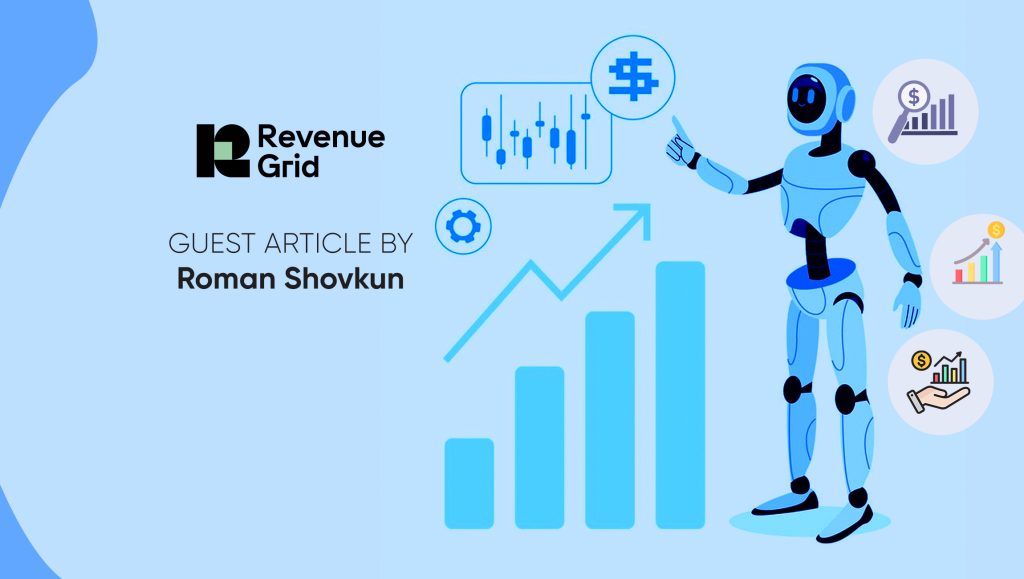Revenue Operations (RevOps) is crucial for aligning sales, marketing, and customer success teams, ensuring they work cohesively towards revenue goals. The efficiency and data quality provided by RevOps empower business leaders with essential information and visibility into forecasting and pipeline management, which are vital for revenue growth. This function is also indispensable for enhancing the sales team’s efficiency and productivity.
AI tools can significantly enhance sales and business development teams’ productivity and efficiency by automating routine, time-consuming tasks. For example, widespread implementation of Customer Relationship Management (CRM) systems, while originally intended to boost efficiencies, has more recently created obstacles. Many sales teams struggle because of the extensive data entry required, rendering CRMs systems of record rather than systems of action. This distinction is crucial, and detracts from sales reps’ time selling and nurturing customer relationships. AI technologies change this equation.
Let’s first examine the challenges inherent to CRM system management and the impact on sales and revenue processes.
The Complexity of CRM Systems and Integration Challenges
CRM systems require extensive data entry for each record or opportunity in the pipeline. To track and keep each deal advancing, data is often layered like a multi-tiered cake and must be accessible to stakeholders across the organization. In some enterprises, sales teams are required to fill out hundreds of fields, which consumes valuable selling time. This creates tension between maintaining high-quality CRM data and maximizing sales activities. Additionally, the data in CRM systems is often incomplete or inaccurate, leading to gaps in the sales process, especially for high-profile opportunities and new prospects. CRM systems can become convoluted over time due to evolving processes and inconsistencies across fields and naming conventions by different teams. This complexity often leads to bad data and inefficient use of CRM systems. Proper integration and automation can alleviate some of these issues, but it’s not an easy task due to the many dependencies within CRM systems.
Read More: SalesTechStar Interview with Joseph Rodriguez, CRO at Portnox
Creating a System of Action and a Single Source of Truth
To overcome these challenges, organizations need to transform their CRM into a system of action that helps sales teams sell more effectively. Additionally, it’s crucial to establish a single source of truth for data, trusted by RevOps leaders for accurate forecasting and reporting. Many organizations today still rely on spreadsheets for pipeline management and forecasting, despite investing heavily in CRM systems. Consolidating these tasks within the CRM and ensuring it is user-friendly can greatly enhance sales efficiency.
AI advancements are also pivotal in addressing CRM-related challenges. Often, I see bad data in CRMs, or really complex processes, which were built 20 years ago in companies that teams are still using. And with each new team that joins the company over time, who were responsible for CRM data, building their own process and it’s a process on top of the process, on top of the process and it generates complexity and inefficiencies inside of the CRM system resulting in companies not being able to utilize their CRM properly. There is no reliable integration between the communication systems and of course, it’s a manual process of entering data into a CRM.
AI Transforms Data Entry, Predictive Analysis and Revenue Meetings
The next generation of AI for RevOps leaders is helping resolve these issues by automating data entry and analyzing communications to generate predictions about opportunities for sales teams. By reducing the time sales reps spend on data entry, AI frees them to focus on selling and strengthening customer engagement, giving them much-needed balance. They no longer need to choose between compromising the quality of CRM data to close sales that generate revenue. For sales teams, AI can bring clarity to pipeline data by predicting what is likely and unlikely to close. Critical pipeline changes and potential risks can be made visible and show “why” deals are slipping so teams know how to act.
At the same time, sales leaders and the executive team need full visibility into the sales team’s activities, especially for important, high-profile customers and brand-new prospects. AI is changing this by optimizing sales teams’ efficiency and providing sales leaders and executives with comprehensive visibility into their activities and interactions. Enhance impact of revenue meetings through pre-call intelligence with post-call recap summaries focusing on revenue-related discussions and action items for prospect calls. Less time spent on status updates free up time for more coaching and strategy, giving RevOp leaders the ability for more strategic discussions with reps, optimizing traditional one-on-one meetings to focus on strategic growth.
It’s not easy to manually automate as there are a lot of dependencies inside of an organization’s CRM, between the various fields and actions that are required but by automating data entry and providing predictive insights, AI can help streamline account management, contract management, and opportunity management throughout the sales cycle. This integration facilitates better understanding and management of each account, customer, and opportunity across all organizational levels, making it easier for companies to achieve their revenue goals. In a world where AI is reshaping our work dynamics, the right tools can redefine productivity and job satisfaction. When AI is done right, it frees up our time so that we can focus on the work that actually interests us, making our work life more satisfying.
Read More: Traceability is Key to Protecting Human Rights in Supply Chains




















